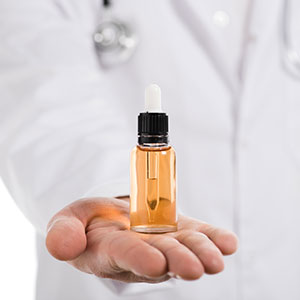CBD’s Regulatory Environment
CBD represents a substantial market opportunity with lots of demand, but what does Federal and State law say? How do you make sure your business stands on solid ground?
- By David Kopf
- Jan 16, 2020
 The intersection of hemp products and the law is typically the main point of trepidation for providers when it comes to offering CBD. From a legal and cultural perspective, cannabis has been so stigmatized that some providers might think there’s something illicit about CBD. There isn’t. In fact, the Federal government has made it a point to legitimize CBD when it comes to the law.
The intersection of hemp products and the law is typically the main point of trepidation for providers when it comes to offering CBD. From a legal and cultural perspective, cannabis has been so stigmatized that some providers might think there’s something illicit about CBD. There isn’t. In fact, the Federal government has made it a point to legitimize CBD when it comes to the law.
For some time, CBD products were existing in a legal grey area where the federal government was concerned. The Department of Justice and the Drug Enforcement Agency considered any part of cannabis — and that includes CBD — a narcotic, but they had not strictly enforced any laws when it comes to what is called “industrial hemp” products that include less than 0.3 percent THC, which covers most CBD products. As a result, many farmers and others further down the CBD economy have been reticent to participate in the business — until now.
So what changed?
The 2018 Farm Act, removed industrial hemp production from the Controlled Substances Act. Signed into law at the very end of the 115th Congress in late December 2018, the Act gives Federal protection to both hemp farmers and CBD sellers.
That said, there are still state statutes with which providers must comply. This is where things get a little tricky because the situation with state laws concerning CBD is all over the map.
To begin with, there are 10 states where cannabis is entirely legal for medicinal and recreational use — Alaska, California, Colorado, Maine, Massachusetts, Michigan, Nevada, Oregon, Vermont, and Washington. In those states, it is clearly legal to sell and use CBD oil.
Conversely, there are three states — Idaho, Nebraska, and South Dakota — that legally prohibit all cannabis-derived products, and CBD sales remain illegal in those states.
In addition to those states, 23 other states allow medical marijuana, and that includes CBD products. And another 14 states have more nuanced or narrow limitations on the sales and use of CBD products or medical marijuana.
This should paint a picture of a legal landscape that is evolving toward ubiquitous legal support for a product that is non-recreational and whose intent is beneficial and is non-psychoactive.
The National Organization for the Reform of Marijuana Laws provides useful state-by-state resources on its web site at norml.org.
So, how should a provider interested in CBD proceed? Well, after reviewing this information and getting a solid idea of where their state stands, Jonathan Fedele, CEO of CBD product maker PurWell suggests that providers check out the U.S. Department of Agriculture, which per the 2018 Farm Act, is in charge of regulating the hemp industry. Also, each state’s department of agriculture can help serve as a resource as well, because the Act requires each state to generate a “hemp plan.”
But ultimately, the best source of advice will be an attorney who specializes in cannabis — and already there are firms specializing in hemp-related law.
“If [the regulation] isn’t crystal clear, then we’re always going to advise that they speak to an attorney who specializes in cannabis,” Fedele says. “Not their uncle Joe who’s a personal injury attorney, but someone who knows the industry.”
Two examples of prominent firms with dedicated CBD resources would be the Hoban Law Group and Greenspoon Marder. An experienced attorney that understands local marijuana and CBD laws will ensure your business is standing on solid legal ground.
This article originally appeared in the Jan/Feb 2020 issue of HME Business.
About the Author
David Kopf is the Publisher HME Business, DME Pharmacy and Mobility Management magazines. He was Executive Editor of HME Business and DME Pharmacy from 2008 to 2023. Follow him on LinkedIn at linkedin.com/in/dkopf/ and on Twitter at @postacutenews.